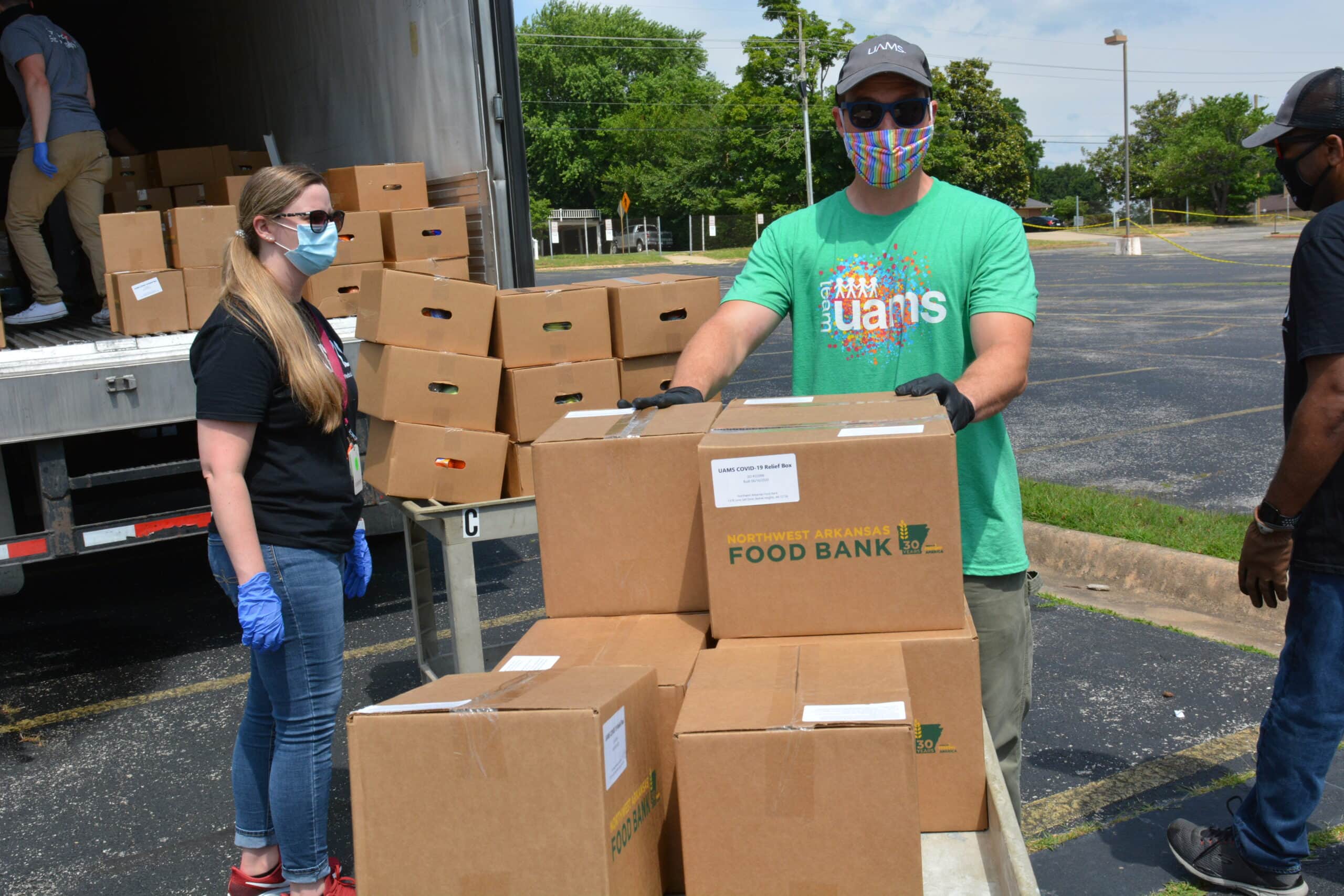UAMS Researchers Link Pandemic to Increased Food Insecurity in Arkansas
| FAYETTEVILLE — Researchers at the University of Arkansas for Medical Sciences found that 1 in 4 Arkansans faced food insecurity in the first several months of the COVID-19 pandemic, according to a study published recently in Dialogues in Health.
The study, “COVID-19 and Food Insecurity in a Vulnerable Rural State,” analyzed various factors related to food insecurity in Arkansas during the summer of 2020. The study found that financial factors specific to the COVID-19 pandemic, such as income loss, were associated with higher odds of experiencing food insecurity.
Researchers also found that racial and ethnic minorities, particularly Hispanic and Black Arkansans, experienced the highest rate of food insecurity, even after participants received their first COVID-19 Economic Impact stimulus check.
“This study showed that many of the same social patterns of food insecurity that existed before the pandemic were amplified during the pandemic,” said Don Willis, Ph.D., a researcher on the study and an assistant professor in the Office of Community Health & Research. “However, we also added new insights into how experiences and policy responses related directly to the pandemic — such as income loss and stimulus payments — shaped food insecurity during the summer of 2020. Our findings highlight the need for policies that are effective in providing vulnerable groups with the appropriate economic assistance they need during a public health crisis.”
Food insecurity is defined as a lack of consistent access to food that is safe, adequate, culturally appropriate and nutritious. It can be temporary or long lasting. Studies have found that food insecurity across the United States increased to 38%, with more than one-third of the food insecure population reporting they were newly food insecure. Before the pandemic, about 11% of the U.S. population was food insecure, according to Feeding America.
About 25% of study participants reported they had experienced food insecurity in the summer of 2020. Previous data indicates that about 13% of Arkansans experienced food insecurity prior to the COVID-19 pandemic. According to Feeding America, about 17% of Arkansans face hunger today, and about 24% of Arkansas children face limited access to healthy food.
The study was supported by the UAMS Translational Research Institute, which is funded by the National Center for Advancing Translational Sciences at the National Institutes of Health, Clinical and Translational Science Award UL1 TR003107.
UAMS is the state’s only health sciences university, with colleges of Medicine, Nursing, Pharmacy, Health Professions and Public Health; a graduate school; a hospital; a main campus in Little Rock; a Northwest Arkansas regional campus in Fayetteville; a statewide network of regional campuses; and seven institutes: the Winthrop P. Rockefeller Cancer Institute, Jackson T. Stephens Spine & Neurosciences Institute, Harvey & Bernice Jones Eye Institute, Psychiatric Research Institute, Donald W. Reynolds Institute on Aging, Translational Research Institute and Institute for Digital Health & Innovation. UAMS includes UAMS Health, a statewide health system that encompasses all of UAMS’ clinical enterprise. UAMS is the only adult Level 1 trauma center in the state. U.S. News & World Report recognized UAMS Medical Center as a Best Hospital for 2021-22; ranked its ear, nose and throat program among the top 50 nationwide for the third year; and named five areas as high performing — colon cancer surgery, diabetes, hip replacement, knee replacement and stroke. UAMS has 3,047 students, 873 medical residents and fellows, and six dental residents. It is the state’s largest public employer with more than 11,000 employees, including 1,200 physicians who provide care to patients at UAMS, its regional campuses, Arkansas Children’s, the VA Medical Center and Baptist Health. Visit www.uams.edu or www.uamshealth.com. Find us on Facebook, Twitter, YouTube or Instagram.
The UAMS Northwest Regional Campus includes 288 medical, pharmacy, nursing and health professions students, 64 medical and pharmacy residents, two sports medicine fellows, and 1,000 community-based faculty. The campus has nine clinics including a student-led clinic and physical, occupational and speech therapy. Faculty conduct research to reduce health disparities. Visit www.uams.edu or www.uamshealth.com. Find us on Facebook, Twitter, YouTube or Instagram.
